![]()
![]()
![]()
Use LEFT and RIGHT arrow keys to navigate between flashcards;
Use UP and DOWN arrow keys to flip the card;
H to show hint;
A reads text to speech;
8 Cards in this Set
- Front
- Back
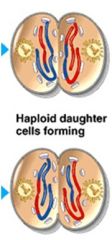
A nuclear envelope forms around each set of chromosomes. The cytoplasm divides.
|
Telophase II and Cytokinesis
|
|
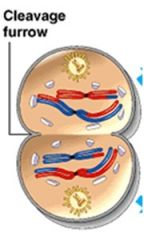
Chromosomes gather at the poles of the cell. The cytoplasm divides.
|
Telophase I and Cytokinesis.
|
|
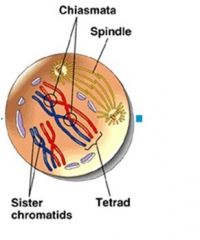
Chromosomes become visible. The nuclear envelope breaks down. Crossing-over occurs.
|
Prophase I
|
|
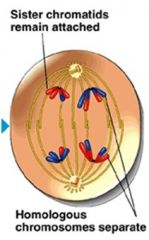
Homologous chromosomes move to opposite poles of the cell.
|
Anaphase I
|
|
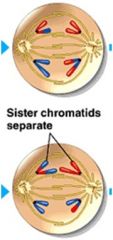
Centro-meres divide. Chromatids move to opposite poles of the cell.
|
Anaphase II
|
|
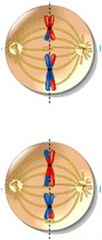
Chromosomes line up at the equator.
|
Metaphase II
|
|
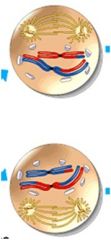
A new spindle forms around the chromosomes.
|
Prophase II
|
|
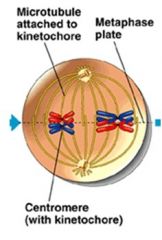
Pairs of homologous chromosomes move to the equator of the cell.
|
Metaphase I
|

